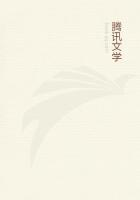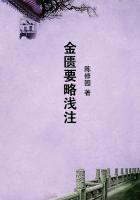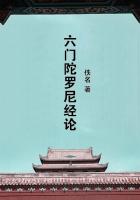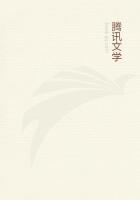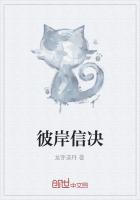Therefore the Aeacid hero's mother gave To him a deep wide silver oil-flask, ta'en By Achilles in possession, when his spear Slew Mynes, and he spoiled Lyrnessus' wealth.
Then fiery-hearted Aias eagerly Rose, challenging to strife of hands and feet The mightiest hero there; but marvelling They marked his mighty thews, and no man dared Confront him. Chilling dread had palsied all Their courage: from their hearts they feared him, lest His hands invincible should all to-break His adversary's face, and naught but pain Be that man's meed. But at the last all men Made signs to battle-bider Euryalus, For well they knew him skilled in fighting-craft;
But he too feared that giant, and he cried:
"Friends, any other Achaean, whom ye will, Blithe will I face; but mighty Alas -- no!
Far doth he overmatch me. He will rend Mine heart, if in the onset anger rise Within him: from his hands invincible, I trow, I should not win to the ships alive."
Loud laughed they all: but glowed with triumph-joy The heart of Aias. Gleaming talents twain Of silver he from Thetis' hands received, His uncontested prize. His stately height Called to her mind her dear son, and she sighed.
They which had skill in chariot-driving then Rose at the contest's summons eagerly:
Menelaus first, Eurypylus bold in fight, Eumelus, Thoas, godlike Polypoetes Harnessed their steeds, and led them to the cars All panting for the joy of victory.
Then rode they in a glittering chariot rank Out to one place, to a stretch of sand, and stood Ranged at the starting-line. The reins they grasped In strong hands quickly, while the chariot-steeds Shoulder to shoulder fretted, all afire To take the lead at starting, pawed the sand, Pricked ears, and o'er their frontlets flung the foam.
With sudden-stiffened sinews those ear-lords Lashed with their whips the tempest-looted steeds;
Then swift as Harpies sprang they forth; they strained Furiously at the harness, onward whirling The chariots bounding ever from the earth.
Thou couldst not see a wheel-track, no, nor print Of hoof upon the sand -- they verily flew.
Up from the plain the dust-clouds to the sky Soared, like the smoke of burning, or a mist Rolled round the mountain-forelands by the might Of the dark South-wind or the West, when wakes A tempest, when the hill-sides stream with rain.
Burst to the front Eumelus' steeds: behind Close pressed the team of godlike Thoas: shouts Still answered shouts that cheered each chariot, while Onward they swept across the wide-wayed plain.
((LACUNA))
"From hallowed Elis, when he had achieved A mighty triumph, in that he outstripped The swift ear of Oenomaus evil-souled, The ruthless slayer of youths who sought to wed His daughter Hippodameia passing-wise.
Yet even he, for all his chariot-lore, Had no such fleetfoot steeds as Atreus' son -- Far slower! -- the wind is in the feet of these."
So spake he, giving glory to the might Of those good steeds, and to Atreides' self;
And filled with joy was Menelaus' soul.
Straightway his henchmen from the yoke-band loosed The panting team, and all those chariot-lords, Who in the race had striven, now unyoked Their tempest-footed steeds. Podaleirius then Hasted to spread salves over all the wounds Of Thoas and Eurypylus, gashes scored Upon their frames when from the cars they fell But Menelaus with exceeding joy Of victory glowed, when Thetis 1ovely-tressed Gave him a golden cup, the chief possession Once of Eetion the godlike; ere Achilles spoiled the far-famed burg of Thebes.
Then horsemen riding upon horses came Down to the course: they grasped in hand the whip And bounding from the earth bestrode their steeds, The while with foaming mouths the coursers champed The bits, and pawed the ground, and fretted aye To dash into the course. Forth from the line Swiftly they darted, eager for the strife, Wild as the blasts of roaring Boreas Or shouting Notus, when with hurricane-swoop He heaves the wide sea high, when in the east Uprises the disastrous Altar-star Bringing calamity to seafarers;
So swift they rushed, spurning with flying feet The deep dust on the plain. The riders cried Each to his steed, and ever plied the lash And shook the reins about the clashing bits.
On strained the horses: from the people rose A shouting like the roaring of a sea.
On, on across the level plain they flew;
And now the flashing-footed Argive steed By Sthenelus bestridden, had won the race, But from the course he swerved, and o'er the plain Once and again rushed wide; nor Capaneus' son, Good horseman though he were, could turn him back By rein or whip, because that steed was strange Still to the race-course; yet of lineage Noble was he, for in his veins the blood Of swift Arion ran, the foal begotten By the loud-piping West-wind on a Harpy, The fleetest of all earth-born steeds, whose feet Could race against his father's swiftest blasts.
Him did the Blessed to Adrastus give:
And from him sprang the steed of Sthenelus, Which Tydeus' son had given unto his friend In hallowed Troyland. Filled with confidence In those swift feet his rider led him forth Unto the contest of the steeds that day, Looking his horsemanship should surely win Renown: yet victory gladdened not his heart In that great struggle for Achilles' prizes;
Nay, swift albeit he was, the King of Men By skill outraced him. Shouted all the folk, "Glory to Agamemnon!" Yet they acclaimed The steed of valiant Sthenelus and his lord, For that the fiery flying of his feet Still won him second place, albeit oft Wide of the course he swerved. Then Thetis gave To Atreus' son, while laughed his lips for joy, God-sprung Polydorus' breastplate silver-wrought.
To Sthenelus Asteropaeus' massy helm, Two lances, and a taslet strong, she gave.
Yea, and to all the riders who that day Came at Achilles' funeral-feast to strive She gave gifts. But the son of the old war-lord, Laertes, inly grieved to be withheld From contests of the strong, how fain soe'er, By that sore wound which Alcon dealt to him In the grim fight around dead Aeacas' son.

